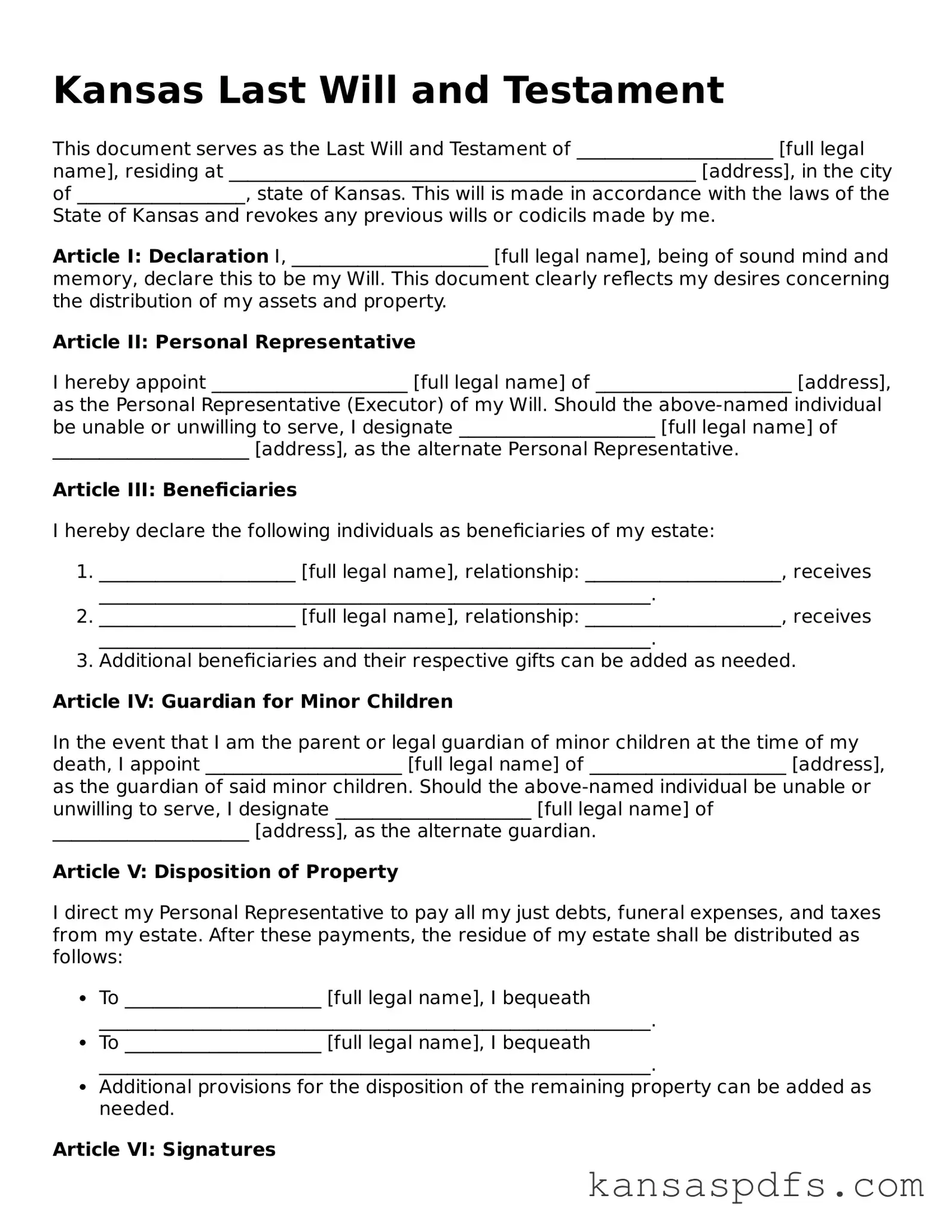Kansas Last Will and Testament
This document serves as the Last Will and Testament of _____________________ [full legal name], residing at __________________________________________________ [address], in the city of __________________, state of Kansas. This will is made in accordance with the laws of the State of Kansas and revokes any previous wills or codicils made by me.
Article I: Declaration
I, _____________________ [full legal name], being of sound mind and memory, declare this to be my Will. This document clearly reflects my desires concerning the distribution of my assets and property.
Article II: Personal Representative
I hereby appoint _____________________ [full legal name] of _____________________ [address], as the Personal Representative (Executor) of my Will. Should the above-named individual be unable or unwilling to serve, I designate _____________________ [full legal name] of _____________________ [address], as the alternate Personal Representative.
Article III: Beneficiaries
I hereby declare the following individuals as beneficiaries of my estate:
- _____________________ [full legal name], relationship: _____________________, receives ___________________________________________________________.
- _____________________ [full legal name], relationship: _____________________, receives ___________________________________________________________.
- Additional beneficiaries and their respective gifts can be added as needed.
Article IV: Guardian for Minor Children
In the event that I am the parent or legal guardian of minor children at the time of my death, I appoint _____________________ [full legal name] of _____________________ [address], as the guardian of said minor children. Should the above-named individual be unable or unwilling to serve, I designate _____________________ [full legal name] of _____________________ [address], as the alternate guardian.
Article V: Disposition of Property
I direct my Personal Representative to pay all my just debts, funeral expenses, and taxes from my estate. After these payments, the residue of my estate shall be distributed as follows:
- To _____________________ [full legal name], I bequeath ___________________________________________________________.
- To _____________________ [full legal name], I bequeath ___________________________________________________________.
- Additional provisions for the disposition of the remaining property can be added as needed.
Article VI: Signatures
This Will shall be executed on this ______ day of _______________, 20____. By signing below, I affirm this document reflects my desires regarding my estate and revokes any prior Wills or codicils.
____________________________________________
[Signature of Testator]
____________________________________________
[Printed Name of Testator]
This Will was signed in the presence of the undersigned witnesses, who affirm that the Testator signed this document in their presence, and appears to be of sound mind and under no duress or undue influence.
Witness #1: ____________________________________________
[Signature of Witness #1]
Printed Name: _____________________
Date: _____________________
Witness #2: ____________________________________________
[Signature of Witness #2]
Printed Name: _____________________
Date: _____________________

